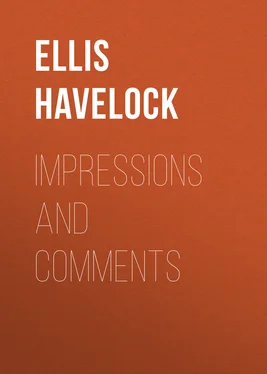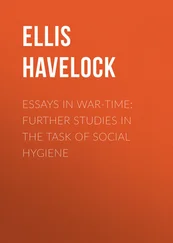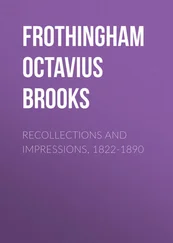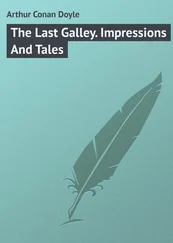Havelock Ellis - Impressions and Comments
Здесь есть возможность читать онлайн «Havelock Ellis - Impressions and Comments» — ознакомительный отрывок электронной книги совершенно бесплатно, а после прочтения отрывка купить полную версию. В некоторых случаях можно слушать аудио, скачать через торрент в формате fb2 и присутствует краткое содержание. Жанр: foreign_prose, foreign_antique, на английском языке. Описание произведения, (предисловие) а так же отзывы посетителей доступны на портале библиотеки ЛибКат.
- Название:Impressions and Comments
- Автор:
- Жанр:
- Год:неизвестен
- ISBN:нет данных
- Рейтинг книги:4 / 5. Голосов: 1
-
Избранное:Добавить в избранное
- Отзывы:
-
Ваша оценка:
- 80
- 1
- 2
- 3
- 4
- 5
Impressions and Comments: краткое содержание, описание и аннотация
Предлагаем к чтению аннотацию, описание, краткое содержание или предисловие (зависит от того, что написал сам автор книги «Impressions and Comments»). Если вы не нашли необходимую информацию о книге — напишите в комментариях, мы постараемся отыскать её.
Impressions and Comments — читать онлайн ознакомительный отрывок
Ниже представлен текст книги, разбитый по страницам. Система сохранения места последней прочитанной страницы, позволяет с удобством читать онлайн бесплатно книгу «Impressions and Comments», без необходимости каждый раз заново искать на чём Вы остановились. Поставьте закладку, и сможете в любой момент перейти на страницу, на которой закончили чтение.
Интервал:
Закладка:
October 11.—When I come, as now, from Cornwall to West Suffolk, I feel that I have left behind a magic land of sea and sky and exquisite atmosphere. But I have entered a land of humanity, and a land whose humanity—it may be in part from ancestral reasons—I find peculiarly congenial. Humanity is not the chief part of the charm of Cornwall, though sometimes it may seem the very efflorescence of the land. It often seems almost a parasite there. It cannot mould the barren and stubborn soil to any ideal human shapes, or develop upon it any rich harmonious human life, such as I inhale always, with immense satisfaction, in this reposeful and beautifully wrought land of Suffolk.
On this evening of my arrival in the charming old town by the quiet river, how delicious—with remembrance still fresh of the square heavy little granite boxes in which the Cornish live—to find once more these ancient, half-timbered houses reminiscent of the Norman houses, but lighter and more various, wrought with an art at once so admirable and so homely, with such delicate detail, the lovely little old windows with the soft light shining through to reveal their pattern.
The musically voiced bells sound the hour from the great church, rich in beauty and tradition, and we walk across the market-place, this side the castle hill—the hill which held for six hundred years the precious jewelled crucifix, with the splinter of the "True Cross" in its secret recess, a careless English queen once lost from her neck—towards our quiet inn, a real museum of interesting things fittingly housed, for supper of Suffolk ham and country ale, and then to bed, before the long walk of the morrow.
October 14.—The Raphaels and the Peruginos are now ranged side by side along a great wall of the National Gallery. I am able more clearly than ever to realise how much more the early master appeals to me than his greater pupil. I well remember how, as a boy of fifteen, in the old National Gallery, I would linger long before Raphael's "St. Catherine." There was no picture in the whole gallery that appealed to my youthful brain as that picture appealed, with its seductive blend of feminine grace and heavenly aspiration. But a little later the glory of Rubens suddenly broke on my vision. I could never look again with the same eyes on Raphael. By an intellectual effort I can appreciate the gracious plenitude of his accomplishment, his copious facility, his immense variety, the beauty of his draughtsmanship, and the felicity of his decorative design. But all this self-conscious skill, this ingenious affectation, this ostentatious muscularity, this immense superficiality—I feel always now a spiritual vacuity behind it which leaves me cold and critical. Every famous achievement of Raphael's, when I come upon it for the first time, repels me with a fresh shock of disillusionment. I am unpleasantly reminded of Andrea del Sarto and even of lesser men; I see the frescoes of Vasari in the distance. It is all the work of a divinely gifted youth who swiftly ran to waste, carrying with him all the art of his day and land to the same fatal abyss.
But the art of Perugino is still solid and beautiful, immutably serene. It radiates peace and strength. I neither criticise nor admire; my attitude is much more nearly that of worship, not of Perugino's images, but of a far-away ineffable mystery, which he in his time humbly sought to make a little more symbolically visible to men than any that came before him. For here we are in the presence of a great tradition which a long series of artists have in succession wrought, each adding a little that expressed the noblest insight of his own soul at its highest and best moments, and the newest acquirement of his technical skill. Raphael broke up painting, as later on Beethoven broke up music. Not that that blow destroyed the possibility of rare and wonderful developments in special directions. But painting and music alike lost for ever the radiant beauty of their prime and its unconscious serenity.
In a certain sense, if one thinks, it is the ripeness of Raphael's perfection which falls short of Perfection. In all Perfection that satisfies we demand the possibility of a Beyond which enfolds a further Perfection. It is not the fully blown rose which entrances us, but rather that which in its half-blown loveliness suggests a Perfection which no full-blown rose ever reached. In that the rose is the symbol of all vitally beautiful things. Raphael is the full-blown rose; the only Beyond is Dissolution and the straggling of faded petals.
October 17.—"War, that simple-looking word which lightly comes tripping from the lips of unthinking men, and even women." So writes a famous war-correspondent, a man in the midst of war and telling of war as it really is. Now hear a woman war-correspondent, writing about this same war: "I was so proud to see the first gun fired on Wednesday. … I liked to hear the shells swishing. … To women keen on this war it seems almost too good to be true." That is not an extract from one of the poignant satires of Janson. This woman, who writes of war as a girl might write of her first long frock, is an actual woman, a war-correspondent, with a special permit to be at the front. We are told, moreover, that she is, at the same time, actively nursing the wounded in the hospital.
To those psychologists who like large generalisations, how this figure must appeal as a type of the ancient conventional conception of what women are supposed to be—Incarnate Devils, Angels of Mercy, blended together.
October 18.—Stanley Hall has lately pointed out how much we have lost by eliminating the Devil from our theology. He is the inseparable Companion of God, and when faith in the Devil grows dim God fades away. Not only has the Devil been the Guardian of innocent pleasure, of the theatre, of dancing, of sports, Hall observes, but he preserved the virility of God. "Ought not we to rehabilitate and reinstall the Devil?"
There is much psychological truth in this contention, even for those who are not concerned, with Stanley Hall, for the maintenance of orthodox Christian theology. By eliminating one of the Great Persons from our theology we not only emasculate, we dissolve it. We cannot with impunity pick and choose what we will dispense with and what we will preserve in our traditional myths. Let us take another sacred myth, as it may well have been, "Jack and the Bean Stalk." Suppose that our refined civilised impulses lead us to reject Jack, the reckless, mischievous, and irresponsible youth, who, after a brief but discreditable career on earth, climbed up into the clouds and fraudulently deprived the Great Giant in the sky of his most precious possessions. But if the revolted moral sense rejects Jack, is it likely that even the Great Giant himself will much longer retain our faith?
In any case it must still be said that mere grandeur, creativeness, the apotheosis of virtue and benevolence, fail to constitute an adequate theological symbol for the complex human animal. Man needs to deify not only his moments of moral subjection and rectitude, but his moments of orgy and revolt. He has attained the height of civilisation, not along the one line only, but along both lines, and we cannot even be sure that the virtue line is the most important. Even the Puritan Milton ("a true poet and of the Devil's party without knowing it," as Blake said) made Satan the real hero of his theological epic, while the austere Carducci addressed a famous ode to Satan as the creator of human civilisation. And if you suspect that European culture may be only an eccentric aberration, then let us wander to the other side of the world, and we find, for instance, that the great Hawaiian goddess Kapo had a double life—now an angel of grace and beauty, now a demon of darkness and lust. Every profound vision of the world must recognise these two equally essential aspects of Nature and of Man; every vital religion must embody both aspects in superb and ennobling symbols. A religion can no more afford to degrade its Devil than to degrade its God.
Читать дальшеИнтервал:
Закладка:
Похожие книги на «Impressions and Comments»
Представляем Вашему вниманию похожие книги на «Impressions and Comments» списком для выбора. Мы отобрали схожую по названию и смыслу литературу в надежде предоставить читателям больше вариантов отыскать новые, интересные, ещё непрочитанные произведения.
Обсуждение, отзывы о книге «Impressions and Comments» и просто собственные мнения читателей. Оставьте ваши комментарии, напишите, что Вы думаете о произведении, его смысле или главных героях. Укажите что конкретно понравилось, а что нет, и почему Вы так считаете.












